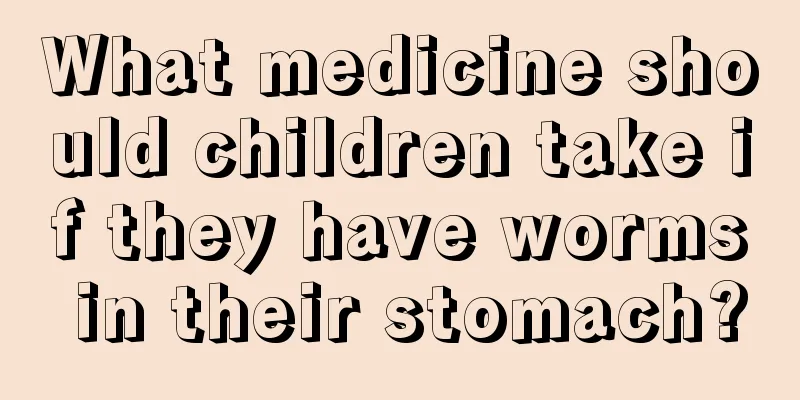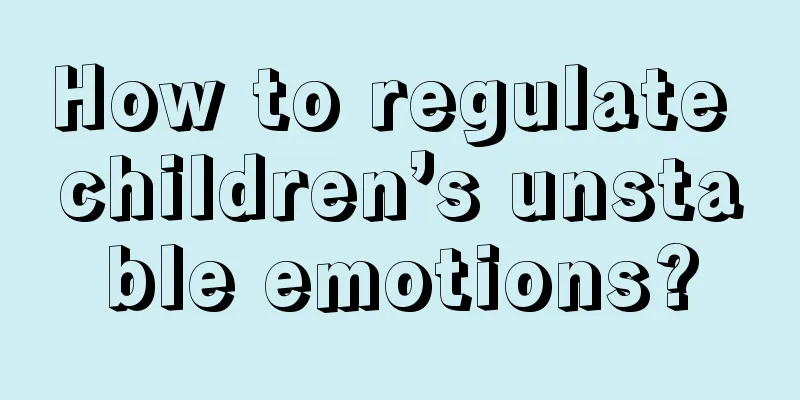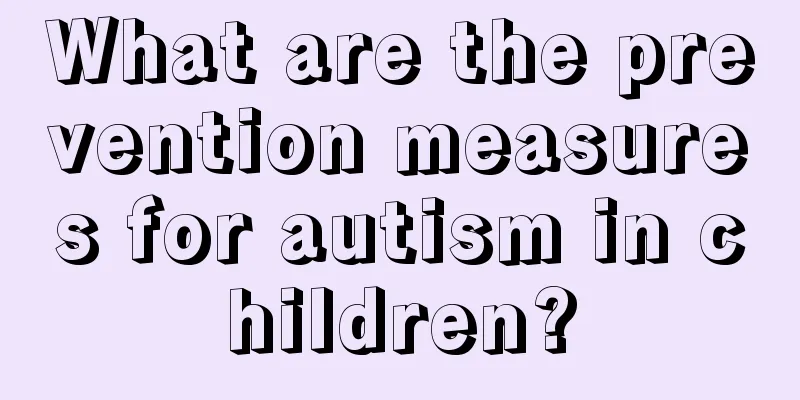What medicine should children take if they have worms in their stomach?

|
Nowadays, the living and sanitary environments have been greatly improved, and there are fewer parasites in the body. In general, as long as there are no pets at home, the chance of children contracting parasites is relatively low. However, children are very active and they touch things around when playing, so they are more likely to come into contact with bacteria or insect eggs. Therefore, they should be given some deworming medicine appropriately. What medicine should children take if they have worms in their stomach? 1. Currently, general anthelmintics on the market can only be taken by children over 2 years old. Children generally need to take it twice a year, once every six months, as a routine deworming procedure. Taking anthelmintics without worms will not cause any harm to the body as long as the dosage is safe. 2. Insect drugs include imidazoles and pyridazoles. Imidazoles are anti-nematode drugs among helminth drugs. Commonly used ones include tetramisole (Chongchongjing), levamisole (Chongchongqing), mebendazole (Anleshi), albendazole (Enterosqing), etc. Albendazole is currently the most widely used broad-spectrum anthelmintic and can be used to treat infections such as roundworms, hookworms, and pinworms. Anthelmintics, like other medicines, can cause problems if taken improperly. Many diseases can cause weight loss or stomach pain. If you take anthelmintics blindly, the parasites may develop drug resistance, making it more difficult to deworm in the future. It should be used with caution in children with impaired liver and kidney function, weak spleen and stomach, and acute fever. In what situations should you suspect that your baby has worms in his stomach? 1. The baby has a poor appetite and shows interest in special foods: some babies like to eat paper, soil, etc. In this case, it is necessary to rule out the symptoms of pica caused by pinworm infection; 2. The baby grows slowly, becomes thin, and suffers from malnutrition; 3. Babies often complain of abdominal pain: Parasites moving in the gastrointestinal tract may cause abdominal pain; 4. The baby is restless, cries at night, or often complains of anal itching; 5. When suspicious worms or white eggs appear in the stool. How to reduce the chance of parasite infection in your baby? 1. Teach your baby to develop a good habit of washing hands before meals and after defecation; 2. Do not eat raw or half-cooked food: Grilling or barbecuing may cause the meat to be incompletely cooked and the parasites may not be completely killed; 3. Cut raw and cooked food separately: It is best to use separate cutting boards for raw and cooked food at home; 4. Carefully select vegetables and fruits: Many parents believe that crops that are purely natural and do not contain any chemical ingredients are the safest. Therefore, some parents like to choose vegetables that are watered with farmers' natural fertilizers (manure) when choosing vegetables and fruits. However, they do not know that this increases the chance of parasite eggs entering the body. |
<<: What is the recovery rate of leukomalacia? How to treat it?
>>: Does a child need surgery for appendicitis?
Recommend
The baby's jaundice has not subsided for three months
Jaundice is a common physiological disease in ear...
Why does my child's back itch all the time?
When parents are taking care of their children, t...
What causes a three-year-old to be allergic to milk?
Many people are naturally sensitive to some thing...
What to do if your baby suddenly cries while sleeping
During the growth and development process of babi...
What are the symptoms of iron deficiency in children and how to solve them?
Proper diet is a key factor in ensuring children&...
What should I do if my two-year-old baby has a bloated belly?
Two-year-old babies are too young to express thei...
What should I do if my child’s feet are scalded? These methods need to be understood
If a child's feet are scalded, parents will d...
Baby's legs have small itchy bumps
It is the spring season again, and many parents w...
Yellow discharge from newborn's eyes
In life, many mothers will find that their babies...
What causes rough skin in children?
Skin problems are not only a headache for adults,...
How to prevent children from hunching over?
According to surveys, many children develop hunch...
Can children have plastic surgery?
The rapid development of cosmetic surgery technol...
Symptoms of hypertonia in premature infants
High muscle tone is a common symptom in newborns,...
Is sticking out the tongue a symptom of cerebral palsy?
The symptoms of cerebral palsy are very common no...
The consequences of children drinking too much water
Babies usually drink breast milk when they are ju...









